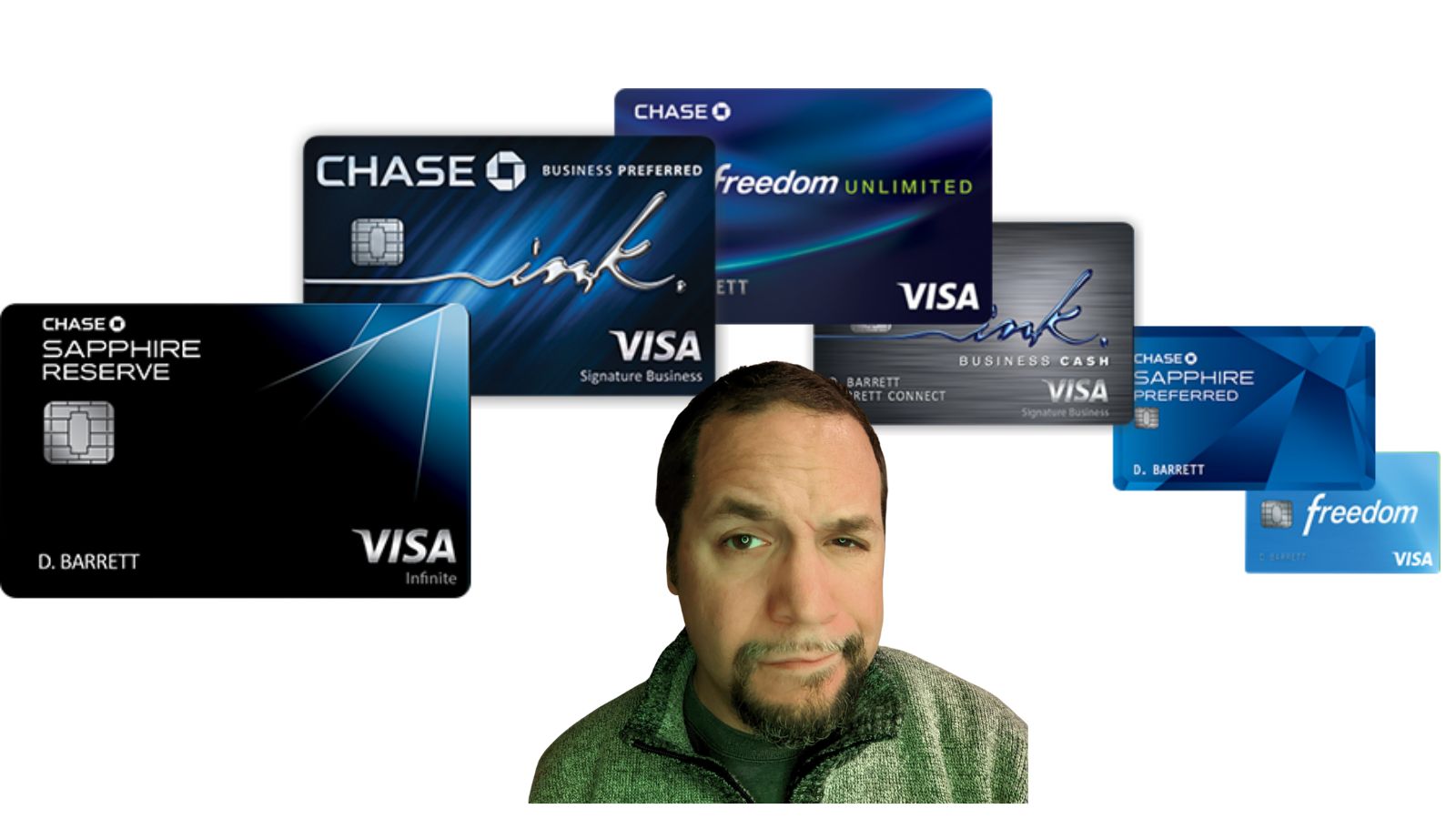
Chase Ultimate Rewards just isn’t a very good transferable points program. There, I said it. Feel free to (try to) change my mind in the comments, but you’ve got your work cut out for you.
Don’t get me wrong, I love Hyatt. Heck, I’m tempted by the 90,000 point welcome bonus available on the Chase Ink Cash card at the time of writing. And the Chase ecosystem has a lot going for it. But one of those things is not the strength of its transfer partner program.
The truth is that I’m only really tempted by Chase points for the purpose of transferring them to Hyatt. And if Chase were ever to lose Hyatt or Hyatt were to significantly devalue their program, Chase Ultimate Rewards could in a heartbeat lose almost all of its luster. I would hate to see Hyatt devalue its program as much as anyone in this space, but I sure wouldn’t bet the farm that it’s never going to happen. What I’m trying to say is that it is high time for Chase to up their game. To be clear, I don’t think they will… but I hope I’m wrong.
The value of transferable points programs is flexibility
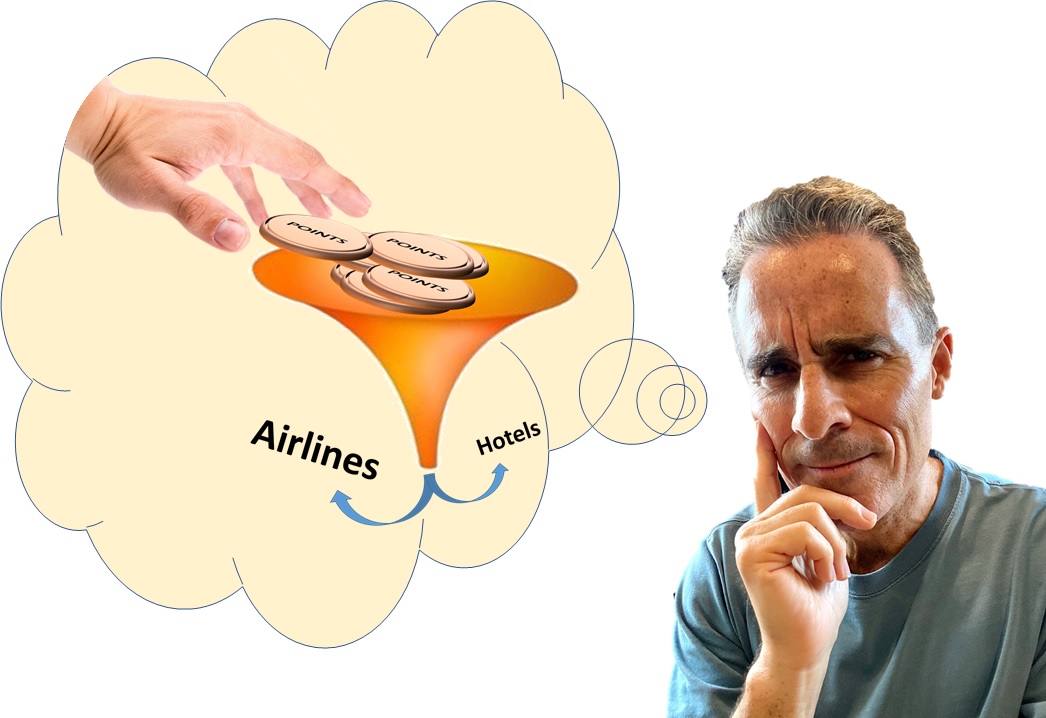
I love transferable points currencies, but what gives those programs their strong value is the flexibility of their points. Most transferable points programs offer a way to get reasonable cash value out of their points, a way to use points toward the cash cost of travel, and transfer partners.
Those who work to master award travel know that (by far) the most valuable use of transferable points in a comparison to retail value savings is transferring them to partners to book award travel. The best of the best redemptions in terms of cents-per-point value typically involve transfers to foreign airline frequent flyer programs and bookings for premium cabin (business or first class) international travel.
I originally got into this game just to travel as much as possible. I was entirely content with flying in economy class and staying in budget hotels. The game and and the persistence of time have changed that perspective: I now almost entirely play the game in order to travel comfortably and in a manner and frequency that is beyond my means. Under ordinary circumstances, I can typically afford a domestic plane ticket and hotel with or without points and miles — but absent award travel, I’d never get to a place like the St. Regis Bora Bora or the Santa Claus Holiday Village in Rovaniemi, Finland or the isolated pacific island of Niue or to a shower in the sky in Emirates first class aboard an A380.

What makes those experiences accessible to me is transferable points.
Airline miles from a single frequent flyer program can certainly make some great redemptions possible. In our 3 Cards 3 Continents challenge, I chose one card that earned miles in a single program: An American Airlines card specifically to use those AA miles to fly Qatar Airways in business class (and later to leverage a little trick to spend 15 hours in the Qatar first class lounge in Doha!). But miles in a single airline program are very limiting. You only have access to that airline’s partners and the sweet spots where they happen to have good prices.
When you get transferable points, you are able to cherry pick the best award deals. All of the major transferable currencies have partners in all three of the major world airline alliances (oneworld, SkyTeam, and Star Alliance), giving you access to potentially book awards on many of the most well-known airlines in the world.
But when it comes to transfer partners, more is better.
Would you rather have 3 transfer partners with excellent redemption options or 10 transfer partners with excellent redemption options? The answer isn’t necessarily as simple as the question implies — an inexperienced award booker would say “10”, whereas a seasoned award booker would say “Which three partners?” — but the fact is that when searching for awards, I appreciate more options. Chase has been hanging their hat on the strength of Hyatt — in my opinion, for too long. That’s not to say that Chase Ultimate Rewards doesn’t have other good redemptions, but rather they don’t have other uniquely good redemptions and because of the disparity in the number of partners they have (versus Amex or Capital One), they give you less flexibility for finding a great award.
For the record, I’m sure that Chase doesn’t see it that way. I’m sure that they would (rightfully) point to lots of great airline partnerships to highlight the many strengths of their transfer partner program. It is true: Chase has some very good transfer partners, but the fact is that their offering is weaker than competitors if you consider everything else other than Hyatt.
Chase’s best transfer partner is World of Hyatt – and even that is niche
Many award travel enthusiasts will tell you that World of Hyatt is Chase’s best transfer partner. That’s because Hyatt offers amazing redemption values, from Category 1 properties like the Hyatt Regency Bali (which can be had off-peak for 3,500 points per night these days) to Category 8 gems like Eichardt’s Private Hotel, which you may have seen in our Instagram story yesterday (Greg’s room there looked amazing!).
We mentioned on the podcast this past weekend that Hyatt has the best on-property elite recognition of any hotel program and anyone who has followed this hobby even lightly is probably aware that the two hotel examples chosen above do not stand alone. There are plenty of great Hyatt redemptions.




But as much as I love Hyatt, they aren’t everywhere I want to be. Their footprint has improved in recent years with the SLH partnership and the addition of many all-inclusive properties. But there are still plenty of places where there isn’t a Hyatt property and in some situations (particularly domestically), your only option is a limited-service Hyatt Place that’s not quite in the right place to fit your needs. Hyatt is wonderful when it works, but it won’t necessarily be everywhere you need to be.
Chase’s other transfer partners are good, but not better than competitors
In addition to Hyatt, Chase has two hotel transfer partners, Marriott and IHG. Neither is a good use of transferable points since both regularly sell their points for less than 1c per point. If you really want Marriott or IHG points and you don’t want to get a Marriott or IHG credit card, just cash out your points at 1c per point or better and buy the points on sale.
Chase’s airline transfer partners are:
- Avios (British Airways, Aer Lingus, Iberia, and Qatar)
- Air Canada Aeroplan
- Air France / KLM Flying Blue
- Emirates Skywards
- JetBlue TrueBlue
- Singapore KrisFlyer
- Southwest Rapid Rewards
- United Mileage Plus
- Virgin Atlantic Flying Club
There’s no doubt that those partners provide opportunities for good value.
I used Aeroplan’s flexible award rules to book an amazing one-way trip to 6 countries over the course of 5 days.

Air France / KLM Flying Blue can be a great program for families booking award tickets.

Singapore is great if you want to fly Singapore Airlines in a premium cabin, which can be a fantastic experience that’s worth a splurge now and again.

Virgin Atlantic is great for booking Delta One to/from Europe.

We’ve written posts about how to use your Chase Ultimate Rewards point fortune. There are many other ways to do so to good value.
Are you ready to call me a hypocrite? After all, this section is beginning to read like a love letter to Ultimate Rewards. Chase’s transfer partners offer some incredible sweet spots. Why am I not more bullish on Ultimate Rewards?
The reason is because everybody else has most of those same partners, also.
Air Canada Aeroplan partners with Amex, Bilt and Capital One. Air France, Singapore, and Virgin Atlantic partner with everyone. Note that there is certainly value in that: you could get a card from Chase, a card from Amex, and a card from Capital One and combine all of the points into a single airline frequent flyer mileage account to book a valuable reward with those programs that partner with everyone. That’s awesome.
But the fact of the matter is that you didn’t need Chase to book that award. And in fact, if you’re looking to book an award for travel on a partner that is also partners with Amex, you can probably earn the points more quickly with Amex welcome bonuses given the very strong bonuses we’ve seen offered on the Platinum and Gold cards in recent years (and the prevalence of offers to get another Platinum or Business Platinum or Business Gold card) and the much more frequent transfer bonuses we’ve seen from Amex. We’ve even seen great targeted offers on the Blue Business Plus, which out-earns the Chase Freedom Unlimited on the first $50K in spend each year and has been offering a much higher targeted welcome bonus.
Speaking of base earnings, the best that Chase has to offer on unbonused spend is the Freedom Unlimited. At 1.5 points per dollar spent, that just isn’t competitive anymore. Citi has the Double Cash, Capital One has the Venture and Spark cards, Amex has the Blue Business Plus. The Freedom Unlimited is a subpar value in the current environment.
And I think that becomes clearer when you think of the partners that Chase doesn’t have.
Chase is missing partners like Turkish Miles & Smiles (a Citi, Capital One, and Bilt partner) that offers flights to Hawaii for 7,500 miles or business class to Europe for 45K miles one way or India for 52.5K one-way. They don’t have Cathay Pacific Asia Miles (an Amex, Capital One, Citi, and Bilt partner), which offers expanded availability on Cathay Pacific flights, a hackable award chart, and reduced surcharges on British Airways flights. They don’t have Etihad Guest (an Amex, Citi and Capital One partner), which offers transcontinental American Airlines business class for 25K miles or Royal Air Maroc business class to Casablanca for 44K miles among other sweet spots. They don’t have Choice Privileges (an Amex and Capital One 1:1 transfer partner, which is not a good deal, but also a Citi 1:2 transfer partner, which is a great deal), and Choice Privileges, while not as good as Hyatt, presents some impressive options for luxury (at amazing value with ThankYou points). They don’t have Wyndham Rewards (a Citi and Capital One partner), which offers an amazing sweet spot with Vacasa vacation rentals. They don’t have Avianca LifeMiles (an Amex, Citi, and Capital One partner), which has a hackable award chart and occasionally fantastic promotions like the recent deal for business class from Brussels to New York for 25,500 miles.
If you notice something about that previous paragraph, notice how many times Amex and Capital One (and to a lesser extent Citi) get a mention. Both Amex and Capital One share numerous sweet spot partners that Chase doesn’t have (and that’s not even to mention Amex’s partner with the most wild value in ANA with their Round the World awards). Both share multiple partners with each other and with Citi that Chase doesn’t have. I have to imagine that those airline programs that overlap between Amex, Capital One, and Citi must be willing to play ball and partner with multiple bank programs. I guess Chase just isn’t interested in expanding its offerings. I wish they would!
I think the key final point here is that Chase’s airline transfer partners aren’t superior to any of their competitors. The partners they have that are not shared by Amex, Capital One, or Citi are United and Southwest. Southwest points have a fixed value of less than 1.5c per point, so I don’t find them to be a compelling use of Ultimate Rewards transfers. United has some decent redemption values – notably about 60K miles one-way on its own metal in business class to Europe. Its Excursionist Perk can be pretty cool. But there just aren’t many situations where United miles would be the best option for booking a particular award (those business class flights to Europe on United are usually available for 45K Turkish miles) and there are quite a few situations where United isn’t the best option by a clear margin.
And it’s worth mentioning that United also partners with Bilt Rewards. I think that Bilt has a far stronger set of transfer partners than Chase, but they are mostly absent in this conversation because you can’t accumulate Bilt points at the same rate as you can with other transferable currencies. They’re great for combining with your other rewards, but you won’t probably earn enough with just that one card to book the sweetest spots.
For what it’s worth, I think that United becomes a notably attractive Chase transfer partner for people who travel frequently for business and naturally rack up lots of United miles and then need to top up those accounts for specific redemptions. Surely that is the case for a segment of Chase customers and United transfers can definitely make sense in that case. But I haven’t really used United miles in years — and I haven’t felt like I was missing anything. And I should note that I’ve flown plenty of Star Alliance flights, I just haven’t wanted to book them through Mileage Plus.
And for every decent United MileagePlus award that you can book with your transferred Chase points I can probably name 3 or 4 or 6 that you can’t book with transferred Chase points but you could book with Amex, Capital One, or Citi points transferred to partners that Chase doesn’t have. Chase is notably behind everyone else in terms of airline transfer partners because for the most part its competitors have Chase’s airline partner strengths and also more. When you add in the larger Amex welcome bonuses and plentiful transfer bonuses, the margin widens.
Chase does have an accelerated path to earnings, but is missing the boat on grocery
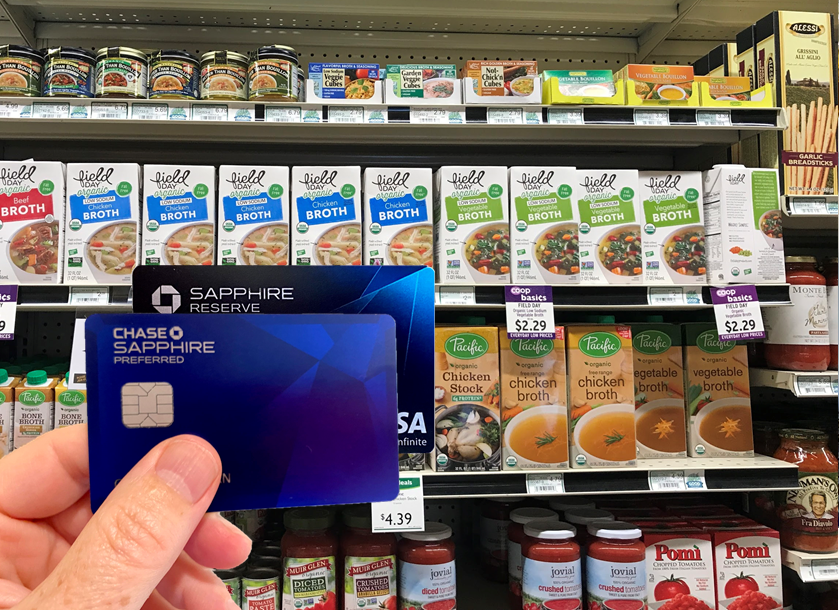
The only major bonus that Chase has going for it is its Ink Cash card and its accelerated path toward earning points given its popular 5x bonus categories. As an example, while it is possible to accumulate Air France Flying Blue miles with any transferable points card, no issuer but Chase offers the opportunity to earn those points at 5 points per dollar spent as broadly as you can if you leverage the Ink Cash card.
Those who spend a lot of money on travel or dining can also be reasonably happy with opportunities to earn 3x in those categories with other Chase cards, but 3x isn’t ahead of the competition. Capital One’s Savor card offers 4% back on dining, which can be converted to 4x Capital One miles (or 3% / 3x with the no-annual-fee SavorOne). The Amex Gold card earns 4x on dining. Citi and Amex offer comparable returns on travel, while Capital One offers 10x transferable points on hotel and car rental bookings through its portal for Venture X cardholders.
More glaring is the grocery gap. While Amex, Capital One, and Citi all offer cards that offer a bonus at US Supermarkets, Chase has been reluctant to add a permanent grocery bonus category within the Ultimate Rewards ecosystem. For anyone who does not have a business card or who is not looking to earn points primarily through office supply stores, Chase just doesn’t have the best option. A grocery-related bonus category is more widely applicable and useful and Chase is notably missing the category altogether except for capped targeted offers or when it becomes a (capped) rotating category on the Freedom cards.
The other major competitive advantage that Chase enjoys over Capital One and Citi is the number of Ultimate Rewards cards on the market, which gives access to multiple good welcome bonuses to jump-start a collection of miles and points. Capital One is arguably competitive on paper, but given the difficulty that many report in getting approved for a Capital One card, it is hard to argue their competitiveness in this regard in real-world experience. Still, I think the Venture X has shown signs that Capital One is looking to be more competitive in this space and major changes take time for large institutions. I think there is hope of things loosening up long-term — and if they do, Chase’s standing could be weakened.
Chase had Pay Yourself Back going for it . . .
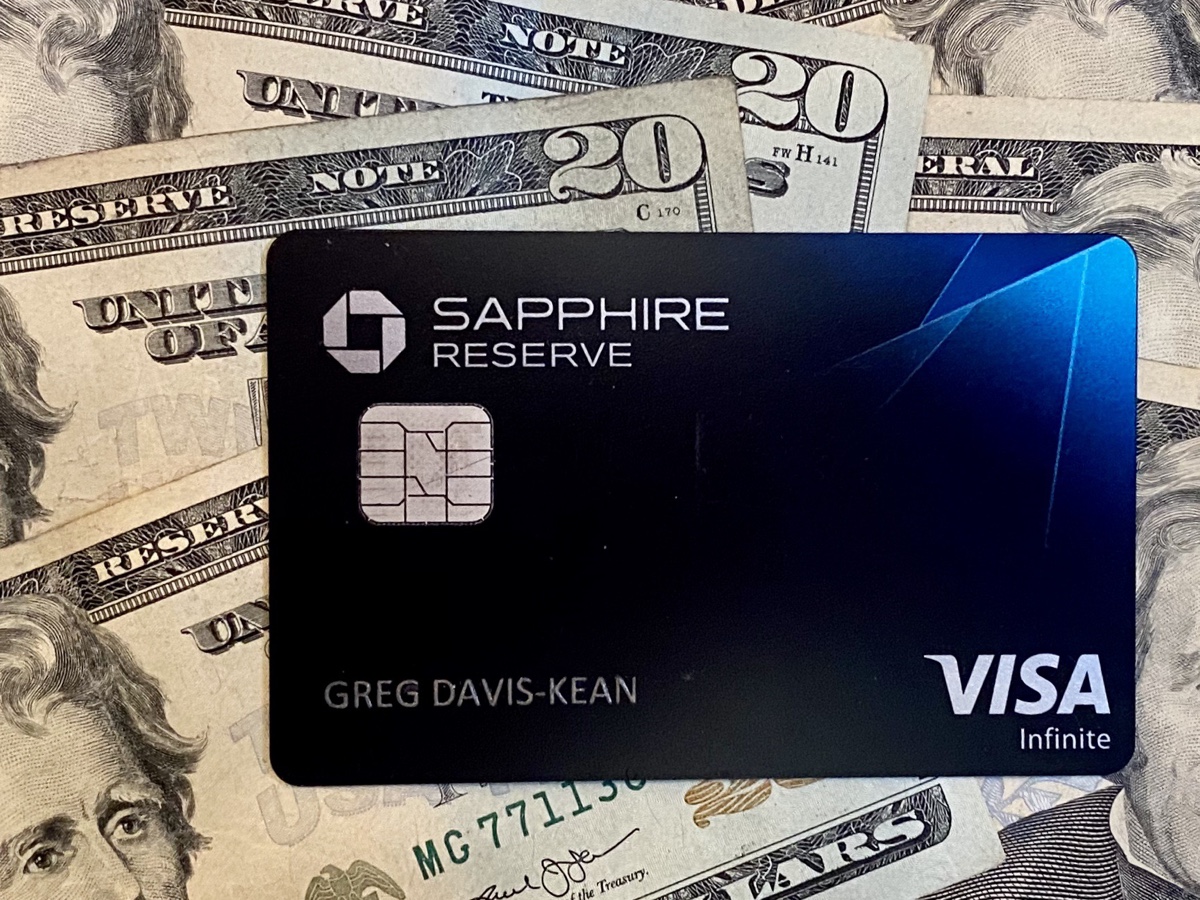
Arguably Chase’s best competitive advantage other than Hyatt has been the introduction of Pay Yourself Back during the pandemic years. From the time this program launched until earlier this month, redemptions through Chase Pay Yourself Back had been at an attractive rate of 1.5c per point for Sapphire Reserve cardholders. Unfortunately, Chase pulled back on that for 2023, dropping the reimbursement rate to a max of 1.25c per point for most categories.
Pay Yourself Back has probably been an expensive proposition for Chase and clearly they decided that it wasn’t something they could continue to offer in the same way in perpetuity. That’s understandable, but it was nonetheless a disappointment.
Travel booked through Chase can be a reasonable redemption

I imagine that the most popular use of Chase Ultimate Rewards points (apart from gift card redemptions or paying for items on Amazon, neither of which are good redemptions but both of which are probably used en masse by the masses) has been using points at a value of 1.5c per point toward paid travel booked through Ultimate Rewards with the Chase Sapphire Reserve card.
This redemption doesn’t excite me as much as it does others, but I recognize that it works out well for some cardholders. At the end of the day, this can be a reasonable use of points. However, that doesn’t detract from my point: Chase isn’t a great transferable points program. It can be good option for booking paid travel (particularly flights) through Chase Travel℠ if you have the Sapphire Reserve card. I certainly hope that Chase keeps this redemption option, but it doesn’t refute the point that their partners are not superior to any other program.
Bottom line
Chase Ultimate Rewards is a good credit card rewards program, but it isn’t better than its competitors without Hyatt. While Chase is probably in no danger of losing Hyatt as a transfer partner, the fact is that every hotel program other than Hyatt is moving away from award charts. I don’t want Hyatt to ever devalue, but if and when it does, Chase will have lost its main competitive advantage in terms of credit card transfer partners.
Yes, there will still be good opportunities to earn 5x points and booking travel through Chase will remain popular, but from a transfer partner perspective, Chase just doesn’t have much of value that other programs don’t also share and they are notably missing a lot of airline frequent flyer programs that partner with their competitors. I’d love to see Chase add partners like Avianca LifeMiles, Turkish Miles & Smiles, and Cathay Pacific Asia Miles. I’d be equally happy to see them bring on other partners. For instance, I’d love to see Chase bring Amtrak back into the fold (not likely, but I’d still like to see it!) or seek out a new partnership that we haven’t seen coming. Perhaps the attitudes of Air Canada Aeroplan’s executives will rub off on Chase at some point and convince them that cardholders want more options.
Unless and until that happens, I consider Chase to have an inferior transfer partner program that mostly relies on a single partner. The truth is that I would be devastated to lose my Chase cards tomorrow because Hyatt is such a great partner today, but I wouldn’t lose much otherwise. Given Chase’s overall strength in this space, that’s somewhat surprising. And let’s be clear: it’s not that I don’t like Chase. I love the Ink Cash card and the Sapphire Reserve and Ritz travel protections and the ease of combining points between two cardholders in the same household, etc. But I think they can do better. I don’t anticipate that we’ll see any major changes to the Ultimate Rewards program any time soon and that’s why I didn’t put this in my 2023 predictions, but I’d love to be wrong about that and see Chase surprise us all with new partners and a grocery bonus category to make an argument other than “Hyatt” as to why Chase has a program that is competitive with Amex and Capital One.


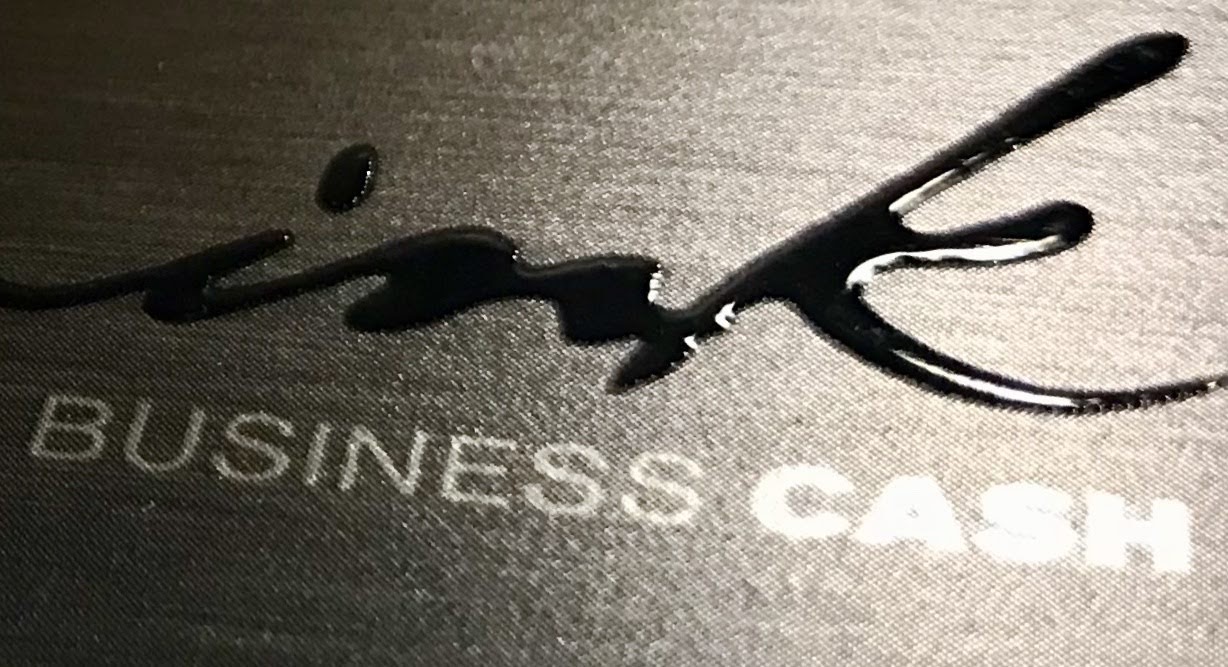


Hi Nick. Interesting perspective on Chase UR points. When it comes to UR points and transferring to Hyatt, how often does Chase offer transfer bonus points? Should I continue to stack and wait for a transfer bonus promo with Hyatt? What is considered a good deal?
There has never been a transfer bonus to Hyatt and I will be shocked if we ever see one.
Hi Nick. Thanks for the insights. Is it because Hyatt doesn’t feel the need to offer transfer bonus points via Chase UR?
I don’t know. I would guess that whatever Hyatt charges Chase for points makes it not financially feasible for Chase to offer a bonus.
Year after year, we mostly see transfer bonuses to the same airlines — and Chase really only first started offering transfer bonuses since the pandemic hit (transfer bonuses were long an advantage for Amex and Citi since they frequently offered them and Chase never used to at all). Since Chase began offering transfer bonuses, I think the only ones we’ve seen have been to Avios programs (Amex has long run bonuses to Avios several times a year also), Air France / KLM (same story here, everybody has frequently offered bonuses), Marriott (they sell their points publicly for less than 1c each during sales, so I’m sure that Chase and Amex are getting these cheaply enough), and I think maybe Chase offered one to Aeroplan.
Even at issuers that frequently offer transfer bonuses, there are plenty of programs to which we’ve never seen a bonus. For instance, Amex offers transfer bonuses almost every month, but we’ve never seen a transfer bonus to ANA. I assume it’s the same thing — ANA miles are costing them too much to offer it is my assumption.
Thanks Nick for the detailed and quick response. Makes sense that perhaps it cost Chase too much to offer transfer bonus for Hyatt. Guess I’m better off when Hyatt offers promo to buy points.
For the record, I just transfer whenever I need to book something. No need to transfer speculatively.
Having Hyatt as a transfer partner is all I need. Their footprint has been growing at a fast pace in recent years. If only we could see a Park Hyatt Bora Bora in the near future.
Well what do you think now because they devalued the points more than I could’ve imagined.
I have been thinking the same and, honestly, am scratching my head a bit on why Chase is so overrated compared to its 3 other main competitors (AMEX, C1, and Citi). Chase does have some exclusive partners that are good and can’t be partnered over through a international program — Hyatt and Southwest — but SUBs have been meh, the CSR is a shell of its former glory, and after SUBs, and earning rates pretty mediocre unless you do some major gaming.
Chase is great on paper and there are a lot of anecdotal bragging stories, but in real life I’d daresay we’re undervaluing the other cards, based on their simpler ease of use and easier whatever redemption schemes.
Or, simply put, Chase for sure if you want to Hyatt and maybe Citi or Venture if you just looking to funnel spend without melting your brain? And, if you’re saving for a big trip with lots of flexibility, just get whomever has the best SUB as since sweet spots are kind of random and you can likely pool if you find one.
Bilt has Hyatt as a transfer partner.
Bilt also has primary insurance coverage on rental cars.
And, Bilt has a built-in (no pun intended) up to 10k bonus points per month in the form of double points on 1st of the month spending.
And if Bilt wasn’t a 5/24 slot with no SUB in my churn run, it would be in my wallet.
Also, looking at it a bit more, Bilt doesn’t have an easy or easy-ish floor liquidation option like Citi (cash at .01/pt), Chase (PYB or Cash Back), Venture miles (.01/mile for travel but with a floor of 2 miles per $ for the AF cards), etc. Instead, you’re limited to travel redemptions (that do max out higher on average because of Hyatt on the upside and have a decent floor at .0125 through portal) or <0.1/mile for the easier stuff like Amazon.
It’s first in class for rent for sure on rental spend and I’ll eventually get it, and I might even give it my restaurant spend, but it’s not something I would make my core earn card.
This was excellent! Thank you for writing this, I feel the same way about my UR points.
PSA — I’m surprised this hasn’t come up, If you live within the footprint of any of the Kroger family of stores you can use Kroger Pay in their app to get 3x UR with a Sapphire Preferred as it is considered internet grocery. I actually set a shortcut on my iPhone so I just say “hey Siri, open Kroger Pay” and scan and go.
The only noticiable downside is that every time I have tried to buy a $500 VGC the purchase won’t go through but third-party GCs in smaller values seem to be fine.
Great tip, thanks. I have found that buying gift cards alone through Kroger Pay triggers either an error message or a request for identification. But mixing the gift card with regular groceries sometimes goes through without employee intervention.
Southwest. That’s why Chase Ultimate Rewards win my business. I only travel within the US and I only spend between 1k-2k per month on my credit cards, so rotating the sign-up bonuses on the Southwest card and Chase Sapphire cards (while having a Freedom) has been the name of my game for the past 10 years (which is as long as I have been in the game). I have tried Amex and Citi once each and I could not for the life of me find good, efficient ways to use those points to fit my travel plans. Sure they have a lot of other partners, but they are terrible if you just want to travel within the US.
If that’s your plan, you’re talking 1 welcome bonus every 4 years on a Sapphire card and 2 every 2 years via Southwest. Wouldn’t you be better off putting your $1-$2K spend each month toward a card with a cash back bonus of around $500 three times a year and using that ~$1500 in cash each year to buy your Southwest flights and also pay for other travel expenses? (at least in the years when you aren’t earning the Southwest card bonuses). That’s the equivalent of more than 100,000 Southwest points each year and it doesn’t sound like you’re currently earning 100K Ultimate Rewards points per year.
I’ve often said that if your primary aim is domestic economy class travel, a cash back strategy makes the most sense. With just Sapphire, Freedom, and Southwest cards, I guess you’re earning 1x on grocery? If you’re only spending $1K-$2K per month, it sounds like you don’t spend a ton on grocery, but you must eat. Get yourself a Blue Cash Preferred for 6% back on the first $6K per year in grocery and after the annual fee you’ll have enough for at least a “free” one-way Southwest flight. I’m sure there are other tweaks available to that strategy that would get you more Southwest flying (and leave you with some extra cash to cover other domestic travel expenses) than earning Ultimate Rewards points to transfer to Southwest (unless you’re leaving details out).
Wow, first off, thank you for the response! I would definitely consider myself a “casual” in this points and miles game, even though I’ve been doing it awhile. You brought up great points about focusing on cash back cards that I had never truly considered. Groceries (~$250/wk) and gas (~$100/wk) are my family’s highest expenses, and I’ve always been pumped (haha) for the added points during the 5x months of those freedom categories, but outside of that, I realize I have not optimized my credit card quiver for my purchases. Also, I always appreciate the year round 3x for restaurants (~$50/wk) on the Sapphire when it’s not a freedom category. Since my current strategy has always left me with more points than I ever needed to use, I guess I have been blissfully content continuing it. It sounds like I need to change! The Blue Cash would net me $265/yr, so what card are you talking about that gets $1500 cash back out of ~$24k spend?
I’ve transferred to United from Chase multiple times, most recently to spend 8k to fly Eurowings from Windhoek Namibia to Victoria Falls (alternative was $200 cash or 7.5k aeroplan plus higher booking fee). I’ve NEVER transferred a point from any currency to Cathay or Etihad.
Perhaps I’m missing out. Or perhaps you are overvaluing those programs and undervaluing United. One of United’s key benefits is free cancellations, a policy I don’t think you’ll get from any other Star Alliance carrier.
Nick, I once took you to task for over-pimping (IMO) the new Aeroplan program for abandoning its cheap J flights to Europe, which is the most popular premium international redemption, in favor of more complicated sweet spots most people won’t be able to use. You (fairly) retorted that there were other programs that would get you to Europe cheaply (eg ANA) but no other program could do what the new Aeroplan did. Isn’t the same thing at play here? Chase has 2 unique partners, one of which is very useful and one that’s sometimes useful. Plus a handful of other fairly useful programs that aren’t unique. It’s the unique programs that really make URs worth collecting. Adding more programs covered off by other transferable programs is of limited value and doesn’t add much differentiation IMO.
The free cancellations thing is only since the pandemic – it was long $200 to cancel an award on United. I will concede that this is a very positive change and that it can be really nice if you often cancel awards / book speculative awards. I certainly have long taken advantage of that with Southwest for backup flights….but then, I think I have maybe once ever transferred a point from Ultimate Rewards to Southwest and I don’t think I’d typically want to give up the flexibility of URs to book a speculative flight whether with Southwest or United points.
I earn my Southwest points through my wife’s Southwest credit cards (like when they run the occasional 5x / 10x bonuses or from referrals or from the shopping portal, etc) and that provides me what I need for those “backup flight” situations without transferring from Ultimate Rewards. If I were to use United in that way, I would probably focus on similar techniques for getting United miles. I don’t really need UR for that. I love flexibility, so I certainly see why you’d value that. I think you’re right that totally free cancellations is unique to united in Star Alliance. ANA charges no change fee but does charge 3,000 miles to cancel.
The fact that you’ve never transferred a point to Cathay surprises me since you were particularly concerned about losing the Aeroplan 55K redemption to Europe. Cathay has a distance-based chart, but I’ve run across 61K options and reasonable surcharges on British Airways a number of times in searches to/from Europe! Not as cheap as no surcharges with United (or Aeroplan), but if you like to travel to Europe you likely at least sometimes struggle to find availability — I find having access to multiple programs means more of a chance at finding the right sweet spot!
But essentially I agree that it would be great to see Chase partner with a program like Korean or Amtrak that is a unique partner. I think you’re right that would add more value.
I’ll have to check out Cathay. But at this point I am generally finding that ANA is dominant on like 75% of international J routes from the US to anywhere in the world, and I’m using them more than everybody else combined (which is why your retort to my Aeroplan complaint was fair). But I do love London so maybe there’s a nonstop flight to be had there on BA that I couldn’t make work with Star Alliance.
I definitely would rather have 400k Amex than 400k UR, just like you. But I’d prefer 300k Amex and 100k URs to either. They offer unique, complementary advantages.
Fair point!
Interesting article but your logic is hard to follow:
I think you feel that Chase relies so heavily on Hyatt because Hyatt is in a lot of cases so much better than 95% of other transfer partners out there across all programs. The truth is UR is an exceptional program for those who care about Hyatt and a middle of the pack program for those who don’t.
Looking at it another way, I could write a very similar article about how the other programs are relying too much on airline transferable currencies and should be adding Accor (I think 2.2cent/pt flat?) or some other hotel program to get on par with Chase. I’d rather have 4 good airline transfer partners and 1 good hotel transfer partner than 10 good airline transfer partners and 0 good hotel transfer partner.
I think your last sentence is where we differ — and while I’m going to argue why I’m on the opposite side, I recognize that we can just have differing opinions on that sentence.
My perspective is that I can almost always find lodging that I can afford (maybe not true in destinations like Bora Bora or the Maldives, but in Paris or Sydney or Singapore or Tokyo or most major destinations, there are hotels within my acceptable price range). By contrast, I rarely find an international business or first class flight that I can afford and/or would be willing to pay cash for (particularly for multiple passengers). We consider Hyatt to be an amazing value at 2.1c per point, but redemptions for international business and first class yield far more value — even if we’re only comparing against what I’d be willing to pay rather than the full retail price (because in an ordinary world, in most situations, I’d gladly pay double the cost of economy to fly business — I just wouldn’t be able to justify the many situations where it’s 4x or 6x or 8x or more difference in dollars and cents).
Having access to 10 good airline partners rather than 4 means I’m going to have more selection — including access to more available awards and better prices. I’d bet that I’d stand to save a significant number of miles over the long haul, particularly with multiple passengers in my family, by having 10 good airline partners rather than 4 good airlines and 1 good hotel partner.
10 good airline partners means a much higher probability of finding a flight that works for the trip you want to take than 4 and the importance of that cannot be overstated.
If I’m going to take a trip to Australia, I know that I can find hotels in Australia that fit my cash budget even if I don’t have or can’t use hotel points. I don’t need Hyatt points to be able to stay in Australia. But when it comes to flights, I know that I’m going to need access to as many different award options as possible to have a hope of finding a business class award to Australia and I’m probably not taking a trip to Australia without a business class award whereas not having hotel points or not having a good hotel redemption wouldn’t stop me from traveling to Australia. The flights are probably the difference-maker in terms of whether the trip will happen or not happen and in most cases they represent the most expensive part of the trip for me, so it’s much more important to me that I cover those costs than hotel costs.
So my argument here does come from that perspective: international business and first class flights to most foreign destinations cost more than what you are likely to spend on a hotel, so I prioritize programs that offer the most hang for your buck for those redemptions (hence why Chase isn’t the cat’s meow to me).
Put me also in the camp of “I’d rather have 4 good airline transfer partners and 1 good hotel transfer partner.”
I think a lot of that comes down to frequency of travel and flexibility of travel. Somewhere in here is an argument about how flexible your life and job are. Nick can more easily “drop everything” and fly to XYZ destination when a good deal comes along or cabin space opens up, even if it’s in February. As a regular old 9-5er, with a wife who teaches, and kids in school, it’s pretty much June-August for me; the peak seasons.
Hyatt offers very predictable, good (if not outsized) value year-round. And without impacting my family budget at all, I can use something like the Chase portal or Southwest, United, etc many times to fit my life. I don’t pay for hotels or airlines, so “just do paid travel” isn’t an option. It has to be points.
Having said that, I do Amex and Chase; so the axiom of “why not both?” seems to apply. 😉 But Chase in an integral part.
Loved the article, BTW.
I’m really curious about the huge number of Hyatt fans. When I first started this game, around 2014, there was a status challenge and I got the top status in the chain (this is just before they switched to the Globalist, etc. setup). It was great and I used it several times with impressive results. But, I don’t travel on real $$ very often, so I wasn’t able to keep it. I think I avoid Hyatt because I’m able to maintain top status with Marriott and Hilton (though CCs and award stays). I would love to know how many people in the comments touting Hyatt have Globalist status and how many do not. No matter how awesome the property, it’s hard for me to turn down late check out and free breakfast (both of which I highly value). I rarely get upgrades anyway, so that’s not something I add into the calculation (though I’m well aware of why that is a given if one has Globalist status).
I also noted that a lot of CR defenders use a lot of United and SW miles. Both of those are of little use to me, as I’m a DL hub captive (ATL) and mostly use miles/points to travel in luxury overseas. I still regret jumping into a deal on a United biz card when I first started because 90k miles looked so awesome. I have yet to use those miles.
So, with all of that said I’m scratching my head wondering why I’m sitting on over 600k CR! I guess because I can’t find a good use for them.
Find a great Hyatt and use them up. I haven’t used a Chase point for anything but Hyatt in years. I just used a ton of points to book an 8 night Hyatt stay in Hawaii in a 2 bedroom condo. Can’t use my globalist status there but it comes with free parking and it’s on the beach and it will accommodate our family very nicely in 1900 square feet. Aside from Hyatt I find little value in Ultimate Rewards
I 100% agree – without Globalist status, Hyatt is useful, but not amazing. You still have good value with points, and waived resort fees. But with globalist when it then includes breakfast, waived award fees, access to Suite Upgrades, free parking (on points/nights) it becomes a slam dunk.
I can’t get to 60 nights/year with Hyatt. BUT, with the CC that gives 5 nights, and then the $15K for a free night cert also gives 6 night credits. MS another 15K-30K as necessary and then that’s another 6-12 nights. Now that I’m starting from 17-23 nights, I can do the remaining ~40 nights by preferencing Hyatt. So I’ve maintained my globalist status ever since that brief status match they did ~10 years ago.
As an example, I had a one night stay in Chicago. I could have stayed in the burbs for $120-150. Or downtown for $200. Or used 12K points for a Hyatt. And then I also go absolutely $0 in fees, free parking ($60), breakfast for 2 (Charge was $70, but would have actually paid $20-30), water bottles, late checkout. Easily would have been $300+ at just about any other hotel. And you get a lot of small unwritten things – I’ve never had a problem canceling even when I was outside of cancellation window, they proactively give small upgrades (and when you ask, you can usually get bigger upgrades).
And my huge thing is TSUs when traveling as a family. I’ve gone to higher end hotels and TSU makes it so much better to have a confirmed suite that otherwise would add a LOT of extra cost to get something equivalent. And it works on top of both points rates and paid rates (including corporate discounts).
Well said James. FWIW your situation is similar to mine:
-Got on Hyatt train 9 years ago with status match
-Wouldn’t generally do 60 nights/year for Globalist, BUT
-Having Hyatt CC for 5 nights, then MS the gap between stays and 60 works
And the value–you often just can’t beat it, esp with many big city / luxurt resort stays (free parking, lots of good properties, high food and lodging costs that are a steal on points.
The two game changers when Hyatt converted from Gold Passport to WOH was CC based nights, and counting award nights. Once they did that, then a Hyatt CC for night credit / promos combined with high earning UR cards like Ink and CSP/R became a compelling combo.
Sometimes, when you’ve accumulated more points than you know what to do with… you just have to do a trip/stay just to treat yourself. A sort of getaway. For example 5 nights at Alila Ventana Big Sur (found some award availability in Oct and Nov if that interests you) or Park Hyatt New York, Miraval in Austin or Tucson.. some trip of that sort. You have the points for both the stay (hyatt) and the flight (united or Sw). I say make it happen! Good luck
Outstanding advice!
I get 5X on my phone, cable, office supply and the 5X right now on Freedom. I’ve booked a hotel on the travel portal but IHG treated me horribly because it was an agency booking. But I hate AMEX and Citi is squirrelly.
+1 on both IHG and Citi
@ Nick – “I consider Chase to have an inferior transfer partner program” – inferior to AMEX; Citi; Capital One; Bilt it seems from your posts? Which program IS the best do you think, and why in comparison to URs, if: “Chase Ultimate Rewards just isn’t a very good transferable points program?”
I might be wrong, but it seems to me you take bits and pieces from most, if not all, the programs to make what you consider to be the most valuable redemptions for many very-long-haul flights. I think all of us reading kind of pick and choose our favorite features as well for whatever our purposes. For a frequent and long-distance traveler like yourself, though, is there a “best” program that’s a solid go-to?
I’m betting that Nick’s favorite transfer currency is AmEx.
Likely…with Sky Hotel Rewards who needs Hyatt?!
Yes, Amex hands down. I think Capital One is also better than Chase.
I love Hyatt, but not as much as I love having far more options for premium cabin flights. As I said in a response elsewhere, at most destinations there is a hotel I can afford. It won’t be the Park Hyatt, but there will be something — not being able to cover a hotel with points won’t make a difference in whether or not I take the trip, but I’m typically not going to find a cheap enough international business or first class airfare that I would pay for it with cash — and that might make the difference in whether or not I take the trip.
It’s also worth mentioning that I could also earn Hyatt points with the Hyatt credit cards, so I don’t necessarily need Ultimate Rewards for that (though, as I’ve also said, I’m not planning to get rid of Ultimate Rewards any time soon — my point is more that if Hyatt devalues and/or left Chase, I think Chase would be left with an entirely uncompetitive product).
Thoughtful analysis. Some counter points:
Do you really think most people in the game are redeeming economy flights in NA? I mean, as he says, the public en masse may, but not those of us in this hobby. I do this almost exclusively to get flights in Biz and F and stay in killer hotels.
Yes? Thanks to Chase and Amex I can count on one hand the number of domestic flights I’ve paid cash for in the last few years. Then every year or 2, me and P2 cross an ocean in J. The money we save flying the lower 48 year-round in Seat 28F is what pays for the fun stuff.
Interesting. Based on the blogs I’ve been reading the last 8-9 years I had the impression that most in the game are in it to get max value per point/mile. Though, I’ll confess to being someone who regularly transfers MR to Marriott to avoid paying just $250/night for a room in NYC. So, same diff I guess. But, I do mostly try to use points to fly to exotic lands and stay in luxury. (I do not, however, have a P2, so my earnings are capped to an extent. OTOH, I never need two seats in F to book that dream flight!)
It would actually be great to get some hard data on how both “gamers” like us and customers in the aggregate redeem their points.
My guess is that the silent majority redeems for domestic flights–and that very fact is a reason why some of the more aspirational awards have not died earlier.
My god I thought this article would never end
I was one of those people that signed up to CSR when it had the initial 100k SUB. But I was probably also amongst the many uninformed users at that time, not realizing the power of transferrable points. I’ve read about the pass great redemptions on Korean Air, and wish Chase would add that back. I don’t recall the last time Chase added any new transfer partners. I also use UR points primarily for Hyatt now, but wish they would add new partners too.
Chase added Aeroplan recently
TL;DR other bank points can be just as (or even more) useful than UR. Sometimes. Also: everyone loves Hyatt.
Anyone doing this long enough knows to diversify, one day you’ll need a UA ticket & TYP aren’t going to get it done. While it’s infinitely easier to earn millions of MR than millions of UR (anyone earning millions of TYP needs to reexamine life choices) it’s not difficult to earn substantial amounts of both.
Also, Bilt is not a real rewards program. They have one card with a 2nd (3rd?) tier bank and will run out of VC funding and free influencer meetups on tropical islands at some point.
You know, it really surprises me how anyone with even a moderate understanding of rewards programs fails to see the value of Bilt. I just can’t even wrap my mind around how some people can’t seem to wrap their minds around it.
I’m someone who rents (with relatively high rent in NYC) and I don’t see the value of Bilt. I’m not sure how many apartment complexes allow credit card payments, but all the ones I’ve looked into allow credit cards (with a 3% fee). Even with the 3% fee, it’s much better for me to continue signing up for new cards every 3 months to earn the bonus than to sign up for a Bilt card.
Without paying rent with my credit card, I’d never be able to make the $15,000 spend requirement for Amex business platinum in 6 months for example. Then the question is, would I rather pay 3% transaction fee for 150,000 Amex points, or earn 25,000 Bilt points in 1 year? Sounds like a no-brainer to me.
It seems to me Bilt is only valuable when the apartment doesn’t take credit card at all, which again, I’m not sure how frequent that is.
@Jason: There is no fee to pay your rent with your Bilt card no matter where you live or what your landlord accepts for payment. In fact, if your apartment complex takes a credit card, you can’t use their system that tacks on 3% if you wanted to — Bilt sends a check. Certainly if you’re going to sign up for a new card every 3 months and your landlord will take a credit card for a 3% fee, it’ll absolutely make sense to pay the 3% fee. Would you say that the majority of people you know at work or socially (i.e. outside of people who live and breathe credit card rewards) sign up for a new credit card every 3 months? I think it’s pretty easy to see the market for the Bilt card. The percentage of American renters signing up for a new credit card every 3 months to pay their rent with a 3% fee is minuscule.
Don’t get me wrong, I think you’re smart to sign up for new cards and earn lots of new welcome bonuses paying your rent. But very few people do that. The Bilt card offers the chance to pay rent anywhere — whether or not your landlord accepts a credit card – with no fee and earn points on it. Almost everyone I’ve ever known who has rented an apartment (who I didn’t meet through this hobby) has paid via check or ACH and earned zero rewards. The Bilt card makes sense for those folks because suddenly those folks would earn let’s say 25,000 points per year that they weren’t otherwise earning (in many markets it would approach the 50,000 point cap annually — for something they were doing with zero rewards before). As one example, a good friend of mine lives in NYC and is very much into this hobby but lives in a building where the landlord doesn’t take a credit card. He said the Bilt card is like earning a 50K signup bonus every year in perpetuity for him. His building is pretty big, so he wouldn’t be alone in that perspective if others knew what they could be earning instead of ACH’ing the rent every month.
Also see the comment from DSK below who earns plenty of Bilt points without paying rent. If you’re able to take advantage of their promos, it can be worth using the card. If you’re always going to be using a card that’s meeting spend for a welcome bonus, great. That’ll always be better. Always has been, always will. If that’s the case, you won’t care about the Ink Cash card for 5x at Office Supply stores or the Amex Gold card for 4x at restaurants or grocery or any of the other category bonuses on the market because none of those will touch the return on spend you’ll get if you’re always spending toward a welcome bonus. Again, I think that’s awesome and it’s the fastest path to more rewards. It’s just not what 99.99999% of people are going to do and that’s why people care about category bonuses and Staples Visa Gift Card sales and the best cards to use for unbonused spend when not working on a minimum spend requirement. And so, as DSK notes in his comment, he uses his Bilt card on the 1st of the month for the types of unbonused things that other people are putting on a CFU for 1.5x so that he can instead earn 2 Hyatt points per dollar spent. Is an extra half a point per dollar spent on unbonused spend going to change the world? Of course not. But you wouldn’t spend on a 1x card if you had a 1.5x card, so it makes sense that you’d earn 2x over 1.5x if you could, no?
Again, I think the market for the Bilt card is mostly people who rent and weren’t previously earning any rewards on the rent (which I imagine has to be greater than 99% of people renting). It’s also a card I would rather use it for 3x dining (or 6x on the first of the month!) than a Chase Ultimate Rewards card because you still get access to Hyatt, United, Virgin Atlantic, Air France, Aeroplan, and Avios and you add American Airlines, Turkish, and Cathay to the mix. That said, I don’t have the Bilt card because I’m in a position where I don’t rent, I don’t really want to use a 5/24 slot for something I would almost exclusively use for dining (and then probably mostly on the 1st of the month since I’d take 3x Bilt over 3x Chase but I’m on the fence bout 4x Amex vs 3x Bilt, and with my kids at the ages they are at right now, I’m really not spending anywhere near what I used to on dining. But just like I can understand why a Costco shopper would want the Altitude Reserve even though the card doesn’t make sense for me, I can understand the massive market of people for whom 20K or 50K points per year on the rent and 3x on dining that can be transferred to a great array of partners would be attractive.
Actually, to be honest, I’m thinking about adding a SavorOne card to my wallet for 3x grocery and dropping the Gold and its $250 annual fee. Maybe that would shake things up some.
Nick – Just curious as you think through this decision (adding a SavorOne vs. continuing to pay $250/year for AMEX Gold), what is your rationale/calculation for keep vs. drop? I’m in a very similar situation with Gold AF coming due soon.
Gaming 3x on dining via methods isn’t that exciting for a card with no SUB and therefore isn’t worth churning even if it was even churnable. Especially when 3x-5x is available on multiple other cards that do have SUBs and are churnable and have the same transfer partners (ie Amex & Chase, but if we’re pretending those aren’t churnable that’s cool, they still have gigantic SUBs. No you can’t transfer to AA but don’t we all have like half a million AA miles sitting there and nothing to use them on? Have you tried booking a partner award with AA lately? It’s BA or bust over there)
Let Richard Kerr slip me a few daiquiris at the next tropical locale & I might change my tune.
Nobody says you can’t have those other 3x-5x cards and also the Bilt card. And nobody says that every card on the market has to be a fit for Parts Unknown’s wallet. I gave the example above of a friend of mine who lives in NYC. He has or has had all of the Ink cards and the CSR and Freedoms and also the Platinum / Business Platinum and plenty of other cards — but why wouldn’t he take 50,000 points per year for his rent? It’s just a no-brainer that has cost him nothing and pays off in 50K easy transferable points — wouldn’t it be short-sighted for him not to get the Bilt card? I know you’re going to say “but you have to use the card 5 times per month” — but you know as well as I do how easy it is to buy 5 packs of gum or whatever.
And btw, yes, I have been looking at booking a couple of AA partner awards just about daily lately. You’re right that there’s been zip available on Qatar or JAL, but I’m still finding *some* stuff on Cathay, Finnair, and Fiji Airways. It all depends on your needs.
I guess we’re thinking of different audiences & skill sets. If I had an extra $50k of spend to do each year I could probably turn that into another 400k-700k of MR/UR/various other points (depending on current SUB, MSR & multipliers). $50k of 1x spending (even with no fees) is like lighting money on fire. But it’s not my money and tbh the more who play the game, the fewer rewards out there for other players. Maybe I owe Kerr a daiquiri now.
Except that if you’re one of the millions of people that lives in an apartment that can’t be paid with a credit card or money order (many, many apartment buildings in major cities require paying by ACH), your skill set for spending your $50,000 (or whatever the rent may cost) would be completely irrelevant because the only way to earn rewards on that would be with the Bilt card. It just amazes me that some people don’t see that. It’s like not seeing that the sky is blue or that water is wet.
In that unique situation I would create spend via other methods and basically swap expenditures. If my rent is $5k I fund a bank account or two (or use one of several other other methods, this one is just clearer for the sake of example) with a new Ink, pay rent via the bank account, use the rent money to pay the cc. Presuming you have a fixed budget I don’t feel like that’s an advanced technique, but maybe? I would then have 90k+ UR (or 75k, whatever they’re offering) for 1 to 1.5 rent payments depending on MSR. If you have infinite spend capability it doesn’t really matter, as you can just MS regardless. In those cases I guess a whopping 50k of Bilt points would be something? Again, different philosophies, skill sets, risk tolerances, bandwidth, etc. I can’t imagine opening a card just to chase(no pun) 5k points/month when I could earn significantly more, but what works for some doesn’t work for others.
Where is the value in BILT if you have no rents to pay? I am surprised most in this game are not home owners. Would love to see what am i missing
See DSK’s comment, but personally I think it’s not going to be of interest to most who don’t have rent to pay. It beats a Freedom Unlimited if you’re able to front-load your monthly unbonused spend at on the 1st of the month (for 2x rather than 1.5x) and the 3x dining matches Chase and gives a better set of transfer partners, but without rent I’m not sure those things would move the needle for most people.
In terms of being surprised that most in this game are not home owners, I don’t know whether most are or aren’t, but I know that stats say that 35% of Americans rent, so I’m sure that there is a very significant number of people in this game who rent — particularly in cities like New York or San Francisco or LA or Chicago, where I would imagine there are also larger pockets of people with the disposable income and credit scores to be into this game.
Again, I’m sure there are lots of home owners also (and I come from a rural area, not a city), but I also know plenty of people who play this game who live in major cities and likely rent.